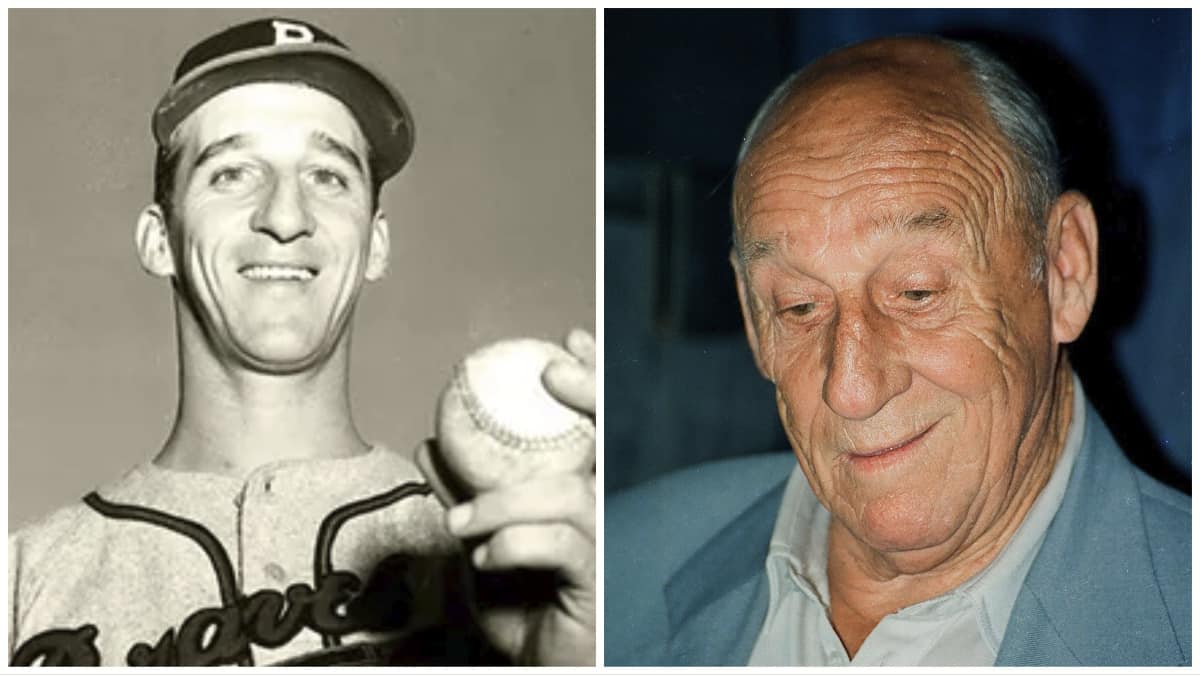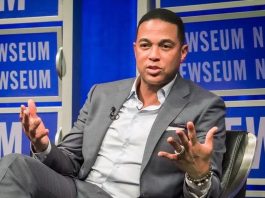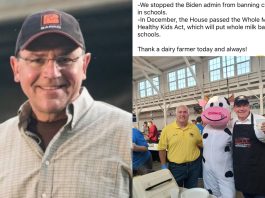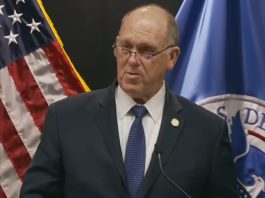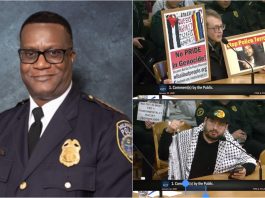Introducing legend Warren Spahn to younger generations is the silver lining here.
I had an interesting conversation with Warren Spahn’s granddaughter today and from that discussion grew an idea: That the renewed media attention on the Milwaukee Braves’ baseball legend could have a positive result by reintroducing Spahn and his legacy to younger generations.
This is an entirely separate question from the open records questions that currently surround Wisconsin Gov. Tony Evers’ use of Spahn’s name in a secret email account. Those are questions for other stories, however. It’s pretty goofy that this is the way we all ended up talking about Warren Spahn again, but it’s good this is who we are talking about. We should talk more about the legacy of the Greatest Generation, and he is a poignant example.
This story is about Spahn himself.
“I had the honor of meeting him at a card show back in the 80’s when I was 8 or 9 yrs old,” a woman wrote of Spahn on our social media page, as positive tributes for the baseball player flooded in. “It was only a brief moment in time, but it made a lasting impact. He asked me if I truly knew who he was and when I launched into a quick Braves dissertation, he made me feel as if it was just the two of us in the room. Such a kind, wonderful man. As I said before, a small moment in time, but a memory of a lifetime.”
“I listened to to the Braves on the car radio with my grandpa, when they would visit us in Iowa. Grandpa called him Spahny,” wrote another.
“On the field today’s pitchers paled in comparison to ironmen like Spahn who is arguably the greatest lefty in MLB history,” another reader wrote.
“Class act AND the greatest left handed pitcher of all time!” wrote another.
Another reader shared, “He lived in Wauwatosa and had a staircase made of bats. Delivered his newspaper. Lived a block away.”
A staircase made of bats!
I shared the memories with his granddaughter, who greatly appreciated them.
Idea: The Milwaukee Public Museum should work with the family to add a new exhibit on Spahn, Hank Aaron, and Milwaukee baseball.
Most of the young people I know, who are under age 30, don’t know who Spahn was, unless they are hardcore baseball fans. That’s a shame because he was one of the greats. He also epitomized the flickering but hopefully, enduring values of the greatest generation, and his World War II service to this nation is as admirable as his baseball talents, which were immense. Those are values we need society to embrace more than ever now. His granddaughter cites the values of the older baseball players and how in touch with the community they were.
Humility. Hard work. Community. Perseverance. Family. Service.
“After what I went through overseas, I never thought of anything I was told to do in baseball as hard work. You get over feeling like that when you spend days on end sleeping in frozen tank tracks in enemy-threatened territory. The Army taught me something about challenges and about what’s important and what isn’t. Everything I tackle in baseball and in life I take as a challenge rather than work,” Spahn once said.
I remember my own father talking about Spahn because he came of age in Milwaukee as a kid in the ‘50s, the child of two newspaper journalists, and he was devastated when the team left for Atlanta. I remember hearing how humble Spahn was and how he was just a regular part of the community, deeply connected to it. Those were the days before baseball players earned millions of dollars and were isolated from fans; Spahn was his era’s Robin Yount, uniquely symbolic of the values in the city he embraced and the era of his prime. His first baseball contract included a “$150 bonus and two suits of clothes.”
Check out this anecdote my dad posted on Facebook last June, “The greatest lefthanded pitcher in baseball history. I was fortunate to see Warren Spahn pitch many times, including his 300th victory, his second no-hitter, and his win in the first game of the 1958 World Series. My first published article was about Spahn and his son, Greg, who was on my Little League team. One memorable night, Spahn came to a game and was our third-base coach and played pepper with us before the game.”
How cool is that? Having Warren Spahn as your third-base Little League coach.
Greg Spahn, who died in 2022, spoke at length about his dad in audio interviews to the Oklahoma Historical Society. “For the limited education he had he was one of the smartest people I’ve ever known. The way people reacted to him, I bring that with me every day. He had a great sense of fairness, just a good man. He was a great father, he was a great baseball player, he was a great individual,” he said.
From everything I’ve read and heard, Warren Spahn epitomizes the values of hard work, raw talent, service to the country, family, and community. He was certainly beloved by his family and his granddaughter Morgan Spahn, with whom I spoke. So, the one silver lining in the bizarre Gov. Tony Evers’ secret email scandal is the great man it’s ended up highlighting.
There’s a reason the National Baseball Hall of Fame chose today to share a history of Spahn’s career on X. “A star on a pitching mound and a hero on the battlefields, Warren Spahn excelled in two far different uniforms,” they wrote. Even more moving was the photo his granddaughter showed me of her father, then a small boy, in a baseball uniform, following behind his uniform-wearing dad. What a cool era to be a part of!
After leading baseball with 21 wins and 18 complete games for the World Champion Braves, Warren Spahn won the NL Cy Young Award on this date in 1957. The southpaw also threw 15.1 innings in the World Series and won an epic Game 4.
Read more: https://t.co/z1JJIozhde pic.twitter.com/wF3Vn8K6Mm
— National Baseball Hall of Fame and Museum ⚾ (@baseballhall) November 28, 2023
Of course, there are the baseball records. According to the Hall of Fame, Spahn, the son of a Buffalo wallpaper salesman and known for his high kick, was “The winningest southpaw pitcher in big league history, Spahn won 363 games in a career that included 13 20-win seasons.”
“Fellow Hall of Famer Stan Musial had his doubts as to whether Spahn, a major league pitcher until his mid-40s, would ever be honored in Cooperstown, once half-jokingly stating, ‘I don’t think Spahn will ever get into the Hall of Fame. He’ll never stop pitching,’” the site explains.
But he also wore another uniform; this one for his country.
The same year that Spahn started his major league baseball career, he put on an Army uniform and went overseas. “Over the next four years he would participate in the Battle of the Bulge and the taking of the bridge at Remagen. A true war hero, he was awarded a Purple Heart for shrapnel wound and a battlefield commission,” says the bio. His granddaughter remembers bringing his purple hearts to school in Oklahoma for show-and-tell. By 1946, he was back pitching. By 1953, he was playing in Milwaukee, helping the Braves win pennants in 1957 and 1958 and staying with them through 1964.
“We were surrounded in the Hurtgen Forrest and had to fight our way out of there. Our feet were frozen when we went to sleep and they were frozen when we woke up. We didn’t have a bath or change of clothes for weeks,” Spahn once said.
This is what the U.S. Army says about Spahn’s war service:
“Private Warren E. Spahn was assigned to the 276th Engineer Combat Battalion. While in training at Camp Gruber, Oklahoma, he pitched the battalion’s team to the post championship. In Europe, at the Battle of the Bulge, he earned the Bronze Star. He likely became the only major league player to receive a battlefield commission.”
Stop by Monument Garden this homestand for a special viewing of @Braves legendary southpaw Warren Spahn’s WWII honors. pic.twitter.com/1A3mDuYPso
— Truist Park (@TruistPark) May 20, 2023
“The 276th played a conspicuous role at the Ludendorff Bridge at Remagen, Germany. The retreating Germans failed to destroy this vital Rhine River bridge, allowing the Americans to pour across it in great numbers and drive into the heart of Germany. Enemy artillery severely damaged the bridge, and the 276th was engaged in making repairs under fire. A combination of German shelling, vibrations from American artillery, and heavy tank traffic caused the collapse of the bridge 17 March 1945, killing several officers and men of the 276th. Lieutenant Spahn was not among the casualties of the collapse, but while at Remagen he was wounded in the foot by shrapnel (‘only a scratch,’ according to Spahn), earning him the Purple Heart. The 276th received a Presidential Unit Citation for its actions at Remagen.”
He spent his final years with his family in Oklahoma. He leaves behind five grandchildren and multiple great-grandchildren.
I asked people on social media for their recollections of Spahn. For many, his name brings back childhood memories:
“He was my favorite player. When I participated in little league day at County Stadium in 1964, we were positioned near the Braves bull pen, and I kept calling Warrens name and he finally acknowledged me and waived his hand!”
“I remember his 300th win, and also he and Juan Marichal might have been involved in one of the greatest, if not the greatest pitching duel in Major League history. I was probably 12 or 13 and listened to it on our kitchen floor on an am radio at 2 in the morning because it was a west coast game, and didn’t want to disturb everyone else. Walk off homer by Willie Mays to win it.”
Another added, “I have that complete newspaper.”
“Shook hands with him and Hank Aaron at a Legends game once at County Stadium AFTER he was in the Hall of Fame. Very kind, humble man.”
“I have the complete Milwaukee Sentinel newspaper from August 13, 1961. SPAHN WINS NUMBER 300!”
“I saw his name & address in a baseball card magazine when I was a kid in the 80s. I mailed him some baseball cards asking him to autograph them. He signed them all and sent them back.”
“My brother played with the Angels when Warren was a pitching coach there, my Father arranged to have him speak to the Wisconsin HS Baseball Coaches meeting and after he came to our home to visit that evening. Very gracious.”
“I got a baseball signed by him about 20 years ago when I was into collecting sports memorabilia. I still remember what a nice, humble person he was. Not all celebs are that way, as we know, especially a lot of old ball players who are jaded because they think (and rightfully so) that they were drastically underpaid when they played compared to the crazy salaries athletes are paid these days.“
“I was an intern for Brewers media relations during the opening of Miller Park. For opening day, they served us dinner up in the media relations area. I was walking by with my tray of food, and Bob Uecker asked me to sit down at his table. Warren Spahn was sitting next to him, and Mr. Uecker introduced me to him. Having grown up in Detroit, I had no idea who he was! They both ribbed me quite a bit about it, but were also very kind and gracious. What a fun dinner that was.”
“I used to help out at autograph signings and I sat next to him for 3 hours. Very funny sense of humor.”
His granddaughter was moved about how her grandfather’s values had “created this community out of fandom for him and baseball.”
It’s exactly the message that younger generations need. So, yes. Let’s talk about Warren Spahn. A lot.
